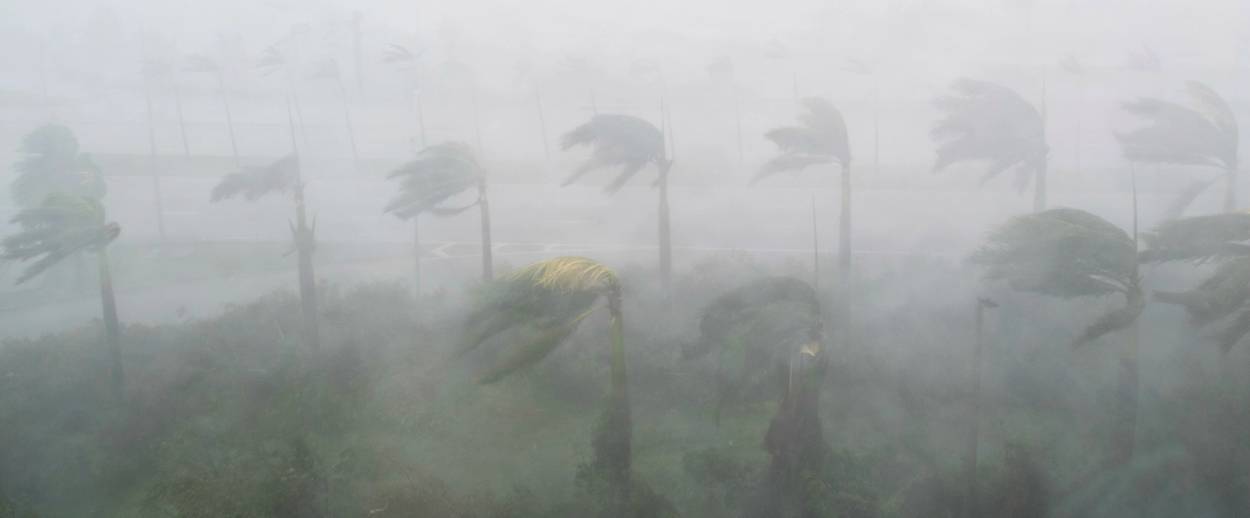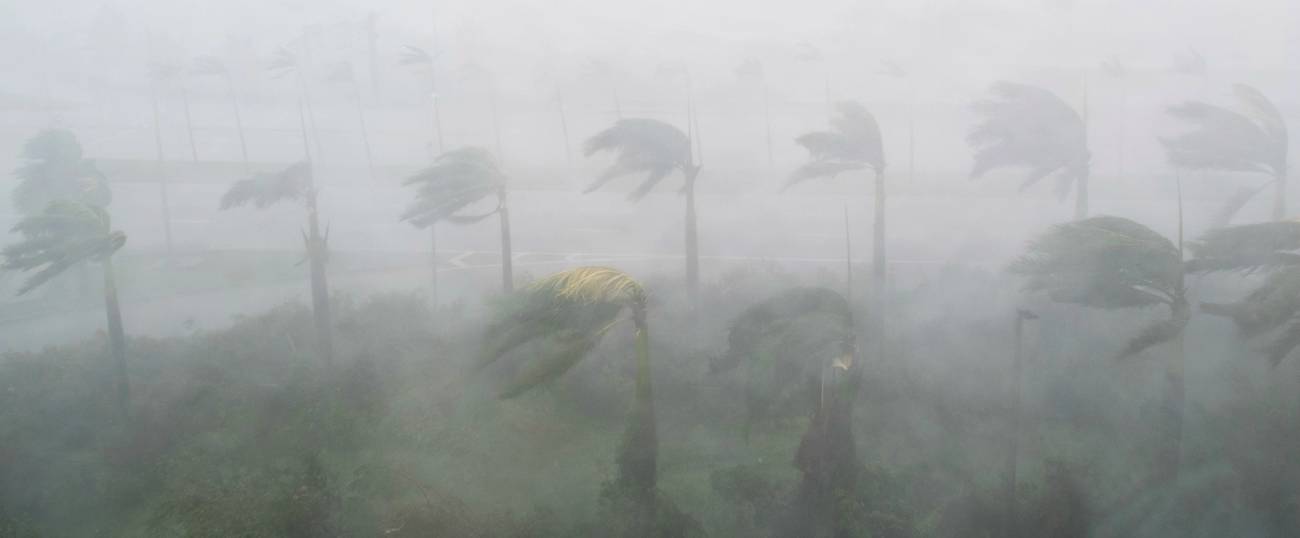Storms Are Wake-Up Calls to Humanity. Just Ask Jonah.
The biblical prophet was tested and saved by a natural world that insisted he start taking responsibility for his actions. That’s a good lesson for us to learn right now.




Every year, it seems that just as we hit the High Holidays, something hits us—a raging hurricane, a tsunami, devastating forest fires, planes into skyscrapers. And that something makes the words of the liturgy and Leonard Cohen have uncanny and unwelcome resonances: Who by fire? Who by water?
Here we are again, haunted by images of natural devastation, in front of us or in the news. Here we are again, with another emergency relief campaign. Here we are again, with another year of unanswered prayers and something else to pray for. The naturalist John Muir called storms convulsions of nature and “varied expressions of God’s love.” The world is not feeling very loved right now.
Storms both evoke and provoke theological responses. Psalms describes God as a solace when the world is overturned: “I would hasten to my place of refuge from the stormy wind and tempest,” (55:8) Isaiah calls a person in pain the victim of emotional weather: “O afflicted one, storm-tossed, and not comforted” (54:11). Proverbs describes anxiety as the face of a natural disaster: “When your dread comes like a storm, and your calamity comes like a whirlwind, when distress and anguish come upon you…” (1:27-28).
It’s not hard to feel like God is crying when the rains come. When they don’t stop, it feels as if God’s disappointment in humanity is at the point of utter disgust. The verse above continues, “Then they will call to me, but I will not answer; they will look for me but will not find me.” Those looking for God in the storm may not find anything divine at all. After all, how could a loving Creator ravage so much of the created world?
Yet there’s another image that’s striking in two biblical passages—one in the Hebrew Bible and one in the New Testament. These verses describe an alternate response to storm conditions unlike the existential questioning that seems most obvious: passivity. Sleep. In the Book of Matthew, Jesus falls asleep during a storm. “And behold, there arose a great storm on the sea, so that the boat was being covered with the waves; but Jesus himself was asleep,” (8:24). Sound familiar? On Yom Kippur afternoon, we read our own story of storm sleep. A great tempest besets the ancient Mediterranean in chapter one of Jonah, and our prophet is nowhere to be found on deck.
“But the Lord cast a mighty wind upon the sea, and such a great tempest came upon the sea that the ship was in danger of breaking-up. In their fright, the sailors cried out, each to his own god; and they flung the ship’s cargo overboard to make it lighter for them. Jonah, meanwhile, had gone down into the hold of the ship where he lay down and fell asleep.” His inactivity was noticed by the captain, the symbol of human authority in place of the divine. “The captain went over to him and cried out, “How can you be sleeping so soundly?”
Sleep in these ancient narratives may represent the deepest faith or the most profound escape. For Jews, at least, it’s about escape. The storm was there to force Jonah into self-confrontation. The leader cannot be a fugitive from responsibility. In an ancient collection of the rabbinic imagination, the sailors didn’t believe that Jonah was the cause of the storm, so they conducted a little experiment: “They took Jonah and lowered him up to his knees into the ocean, and the sea quieted from its storm. But when they drew him back, the sea raged again. So they lowered him until his navel, and the sea’s storm grew still; but when they lifted him out, it raged again. They lowered him up to his neck, and the sea quieted; but again, as soon as they had raised him, it raged. Finally, they lowered Jonah’s entire body into the ocean. Immediately, the storm at sea ceased.”
This is not about correlation. It’s about causation. And it comes with a much more significant message about the relationship of human beings to nature. We, too, cause our storms and then sleep through them. We pretend that our carbon footprint doesn’t matter. We’re just one person in a much bigger planet. Jonah was only one person. We pretend that climate change is too obtuse a subject for us. Maybe it’s even a political fabrication. We can’t be bothered. This will only make a difference for a generation we’ll never see.
Jonah was ultimately redeemed by a natural world that did not give up on him: the storms, the fish, the worm, the sun, the winds—all harnessed for a human being to look at himself and face an expansive responsibility for a world he was avoiding. It’s only the leader in the story who asks, “How can you be sleeping so soundly?” But we are. We are.
We, too, are sleeping soundly when every storm asks us to pay a different kind of attention to nature. The storm is a wake-up call for humanity. We ignore it at our peril.
Dr Erica Brown is an Associate Professor at George Washington University and the director of its Mayberg Center for Jewish Education and Leadership.